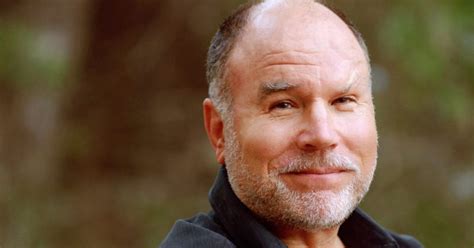A Quote by Oliver Stone
I was trying to find out what happened in my lifetime, because I was an older man. We lived through two terms of George Bush, and I was wondering, "Is he an exception to the rule, or he is a continuation? What is driving all these wars? What is driving this attitude of aggressiveness and militarism?" I got my answer - and it was a shocking answer. I found is this whole strain of history, this whole school has been denied by the media. It is a bizarre blindness, because we are such an intelligent country. It's bizarre that we can't get our own history straight.
Quote Topics
Aggressiveness
Answer
Attitude
Because
Been
Bizarre
Blindness
Bush
Continuation
Country
Denied
Driving
Exception
Exception To The Rule
Find
Found
George
George Bush
Get
Got
Happened
History
Intelligent
Lifetime
Lived
Man
Media
Militarism
Older
Older Man
Our
Out
Own
Rule
School
Shocking
Straight
Strain
Terms
Through
Trying
Two
Wars
Whole
Wondering
Related Quotes
I went out to cover the wars in Iraq and Afghanistan fundamentally [in Buzzing at the Sill] because I was interested in war as a notion and in experiencing it. I was interested in history and how societies form. I was interested in the recent history of what had provoked these wars. So when I finally got out there, I was really seeing the wars through the American perspective, much more than through being embedded with American soldiers and Marines.
"What is the meaning of life?" This question has no answer except in the history of how it came to be asked. There is no answer because words have meaning, not life or persons or the universe itself. Our search for certainty rests in our attempts at understanding the history of all individual selves and all civilizations. Beyond that, there is only awe.
When I went to high school - that's about as far as I got - reading my U.S. history textbook, well, I got the history of the ruling class. I got the history of the generals and the industrialists and the presidents that didn't get caught. How 'bout you? I got all of the history of the people who owned the wealth of the country, but none of the history of the people that created it.
Whole great chunks of written history are of little value to the psychohistorian, while other vast areas which have been much neglected by historians - childhood history, content analysis of historical imagery, and so on - suddenly expand from the periphery to the center of the psychohistorian's conceptual world, simply because his or her own new questions require material nowhere to be found in history books.
To be loved by someone is to realize how much they share the same needs that lie at the heart of our own attraction to them. Albert Camus suggested that we fall in love with people because, from the outside, they look so whole, physically whole and emotionally 'together' - when subjectively we feel dispersed and confused. We would not love if there were no lack within us, but we are offended by the discovery of a similar lack in the other. Expecting to find the answer, we find only the duplicate of our own problem.
We can each sit and wait to die, from the very day of our births. Those of us who do not do so, choose to ask - and to answer - the two questions that define every conscious creature: What do I want? and What will I do to get it? Which are, finally, only one question: What is my will? Caine teaches us that the answer is always found within our own experience; our lives provide the structure of the question, and a properly phrased question contains its own answer.
What's really driving the boom in coaching, is this: as we move from 30 miles an hour to 70 to 120 to 180......as we go from driving straight down the road to making right turns and left turns to abandoning cars and getting motorcycles...the whole game changes, and a lot of people are trying to keep up, learn how not to fall.
If you thought you were trying to find out more about it because you're gonna get an answer to some deep philosophical question...you may be wrong! It may be that you can't get an answer to that particular question by finding out more about the character of nature. But my interest in science is to simply find out about the world.







































